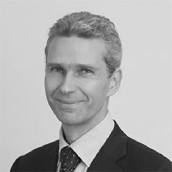
Dr. Christian H. Kaelin, TEP, FIMC, is the Chairman of Henley & Partners.
In the intricate landscape of the 21st century, few matters epitomize the complexities and ethical imperatives of our time as profoundly as the refugee question. From the poignant images of families fleeing war-torn areas to the divisive political debates across the world, the refugee and migration crisis confronts us with the challenging realities of displacement and emphasizes the necessity for coordinated international efforts and compassion.
According to the latest statistics from the UN Refugee Agency (UNHCR), over 110 million individuals are displaced from their homes, a figure that has doubled over the past decade. As temperatures rise, natural disasters become more frequent and severe, displacing communities and rendering their habitats uninhabitable. Simultaneously, political instability and armed conflicts in various regions force countless people to flee their homes in search of safety and refuge. More than 70% of refugees are fleeing conflict, with the majority originating from war-torn nations like Syria, Venezuela, and Ukraine, where violence and persecution have uprooted entire populations. Notably four of the top five host nations, Türkiye, Colombia, Germany, Pakistan and Uganda, are developing countries.

Behind these statistics lies a tapestry of human stories. Stories of loss, resilience, and hope for a better future. These narratives reflect the determination of individuals and families who, despite facing immense challenges, hold onto hope to rebuild their lives in unfamiliar places.
In the face of such substantial challenges, traditional approaches to addressing the refugee and migration crisis have proven inadequate. The reality for many refugees is that they live in barely humane conditions in poorly managed camps for years, or often decades. If they cannot be accommodated in a host nation, the next solution is repatriation. Unfortunately, for many, returning to their countries of origin is not a viable option, especially if they are fleeing famine, ongoing war, or an uninhabitable environment. Moreover, the rising tide of xenophobia and political nativism has further complicated efforts to find sustainable solutions, relegating refugees to the margins of society and perpetuating cycles of exclusion and marginalization.
Countries such as Canada, New Zealand, and the USA have to some degree effectively managed the delicate process of integration. However, in today’s political climate, local integration is becoming the less favored solution as it stirs up heated debates by growing pockets of society that fear the effect that new migrants will have on their current socio-economic fabric. This closed-door policy and resistance to change is becoming evident even in countries that historically were founded on the backs of migrants.
Though not a widely implemented solution, resettlement, which is the transfer of refugees to a third country, which grants them permanent residence, is yet another option. It is not a popular choice and requires bilateral or multi-lateral government collaboration; therefore, to date, its success has been rather limited.
In the midst of pervasive despair, an innovative concept emerges: the establishment of Free Global Cities. A promising departure from conventional modalities, including refugee camps, state-sponsored resettlement, and integration initiatives, aimed at addressing the multifaceted challenges of the refugee and migration crisis.
The Free Global City is a broadly undefined term but to which a few notions can be attributed to. We envision it as a place where anyone can move to and become a resident with a special focus on and privileged access for those uprooted by war or disasters. It is also a place where the talents and motivations of displaced people can be put to productive use so that they may earn a wage or set up a business and live an economically independent life with their families. It is a place where they can feel safe and secure from the persecution they fled from. It is also a place that benefits the host country’s economy and is perceived as an asset rather than a liability. Technically speaking, a Free Global City is a special status jurisdiction – within a country’s borders – in which displaced people, who would otherwise be barred from working, can be employed, start a business and rebuild their lives. In a Free Global City, migrants can legally work immediately, or operate their own businesses, access goods and services, have property rights and enjoy other rights ordinarily denied to them.
Free Global Cities we have in mind have the potential of generating tax revenue for the host country, returns for the investors and ultimately becoming thriving communities with strong economies. Furthermore, we believe that such cities will be able to help mitigate the worst migration crisis in history, which the world will be experiencing in the coming decades.
What distinguishes the concept of a Free Global City from existing models of refugee assistance is its commitment to transcending the traditional binaries of aid and charity, integration and assimilation. Rather than perceiving refugees as passive recipients of benevolence or burdens on host communities, it recognizes them as agents of change, capable of contributing their skills, talents, and perspectives to the collective tapestry of human endeavor. By fostering environments of inclusivity, innovation, and opportunity, Free Global Cities seek to harness the untapped potential of displaced people and other migrants, transforming them from victims of circumstance into architects of their own futures.